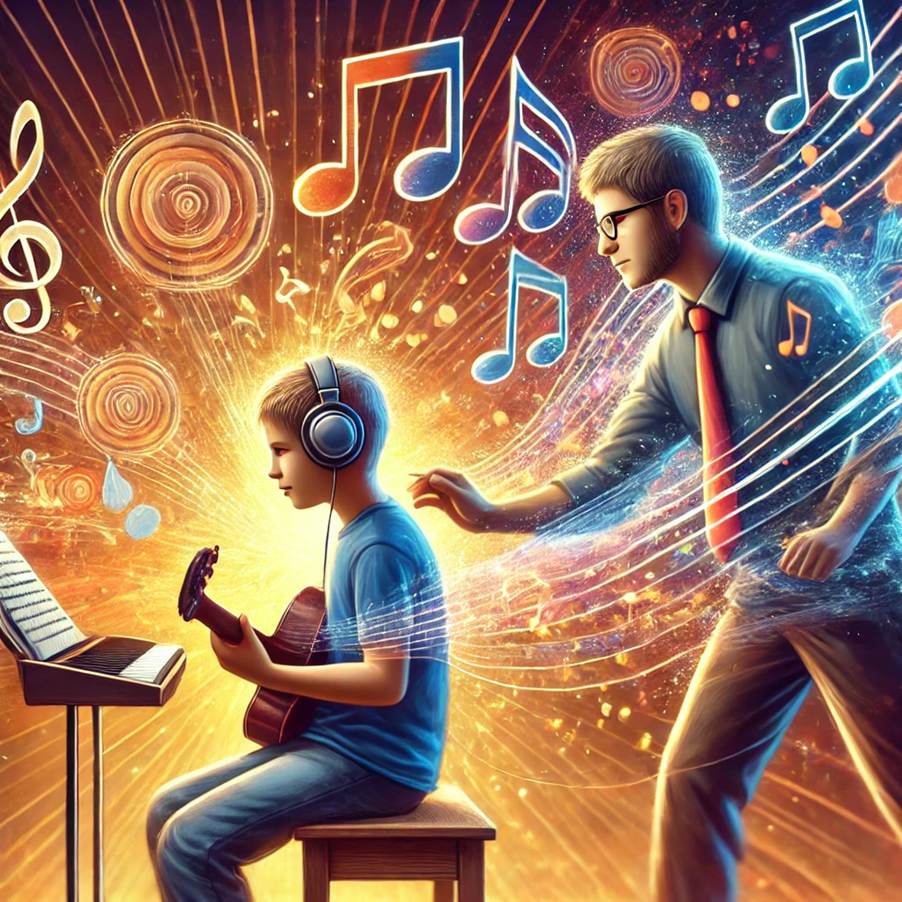Attention-Deficit/Hyperactivity Disorder (ADHD) affects millions of people worldwide, impacting focus, impulse control, and executive functioning. While traditional therapies and medications are often recommended, music has emerged as a powerful tool to support individuals with ADHD. From improving concentration to fostering emotional regulation, music offers a unique way to engage the ADHD brain.
How Music Benefits Individuals with ADHD
1. Enhances Focus and Attention
One of the hallmark challenges of ADHD is difficulty sustaining attention. Music, particularly structured compositions with predictable rhythms, can help regulate brain activity. Research suggests that background music, especially classical or instrumental pieces, can reduce distractions and improve task persistence.
2. Regulates Emotions and Reduces Anxiety
ADHD often coexists with emotional dysregulation, making it challenging to manage frustration and stress. Music has been shown to activate the brain’s limbic system, which controls emotions. Upbeat music can boost mood and motivation, while slower tempos can calm anxiety and aid in relaxation.
3. Supports Executive Functioning
Executive functioning skills, such as planning, organizing, and problem-solving, are often impaired in individuals with ADHD. Learning to play an instrument requires structured thinking, sequencing, and fine motor coordination—all of which strengthen executive functioning.
4. Encourages Movement and Kinesthetic Learning
Many people with ADHD are kinesthetic learners, meaning they learn best through movement. Drumming, dancing, or even tapping along to music can help channel hyperactivity into productive energy, improving focus and engagement.
Choosing the Right Music for ADHD Support
Not all music is equally beneficial for individuals with ADHD. Here are some recommendations:
- Classical and Baroque Music: Composers like Mozart and Bach create structured yet stimulating soundscapes.
- Lo-fi or Ambient Music: These genres provide gentle background stimulation without overwhelming the listener.
- Instrumental Film Scores: Music from movies, such as Hans Zimmer’s compositions, can be motivating without being distracting.
- Binaural Beats and Isochronic Tones: Some research suggests that specific sound frequencies can enhance focus and cognitive function.
The Role of Music Education in ADHD Management
Engaging in music education—whether learning an instrument, singing, or composing—can be especially beneficial for individuals with ADHD. Studies have shown that musical training enhances memory, attention span, and auditory processing skills. Additionally, playing in a band or orchestra promotes teamwork, discipline, and self-regulation.
How Music Teachers Can Help
Music teachers play a crucial role in supporting students with ADHD. Here are some strategies they can use:
- Provide Structure and Routine: Clear expectations, consistent schedules, and step-by-step instructions can help students stay engaged and organized.
- Incorporate Movement: Encouraging physical movement, such as tapping rhythms or using body percussion, can help students channel their energy productively.
- Use Multi-Sensory Teaching Methods: Combining auditory, visual, and tactile learning experiences can make lessons more engaging and accessible.
- Offer Positive Reinforcement: Encouraging progress with praise and rewards can help build confidence and motivation.
- Adapt Teaching Styles: Understanding each student’s unique learning needs and adjusting the pace or methods accordingly can create a more inclusive and effective learning environment.
Conclusion
Music is more than just entertainment—it’s a scientifically supported tool that can benefit individuals with ADHD by enhancing focus, emotional regulation, and executive functioning. Whether through listening, playing an instrument, or engaging in rhythmic activities, music provides an enjoyable and effective way to support cognitive and emotional well-being. Music teachers play an essential role in this process by creating structured, engaging, and adaptive learning environments that help students with ADHD thrive. Their guidance and understanding can make music an even more powerful tool for cognitive and emotional development. If you or someone you know has ADHD, consider integrating music into daily life and experience the transformative effects it can offer.

